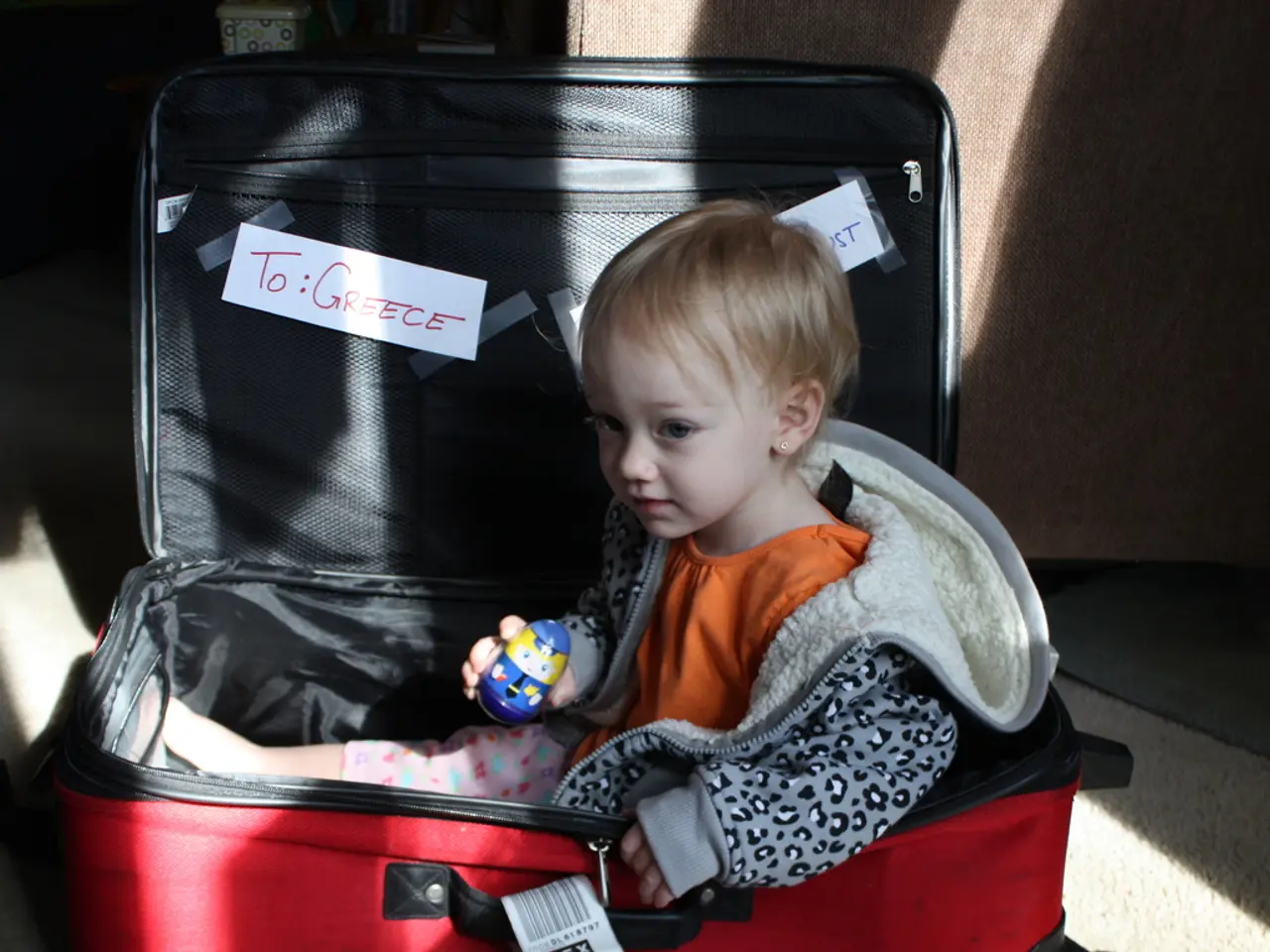Greece faces a renewed refugee predicament.
In the first half of 2025, Greece has witnessed an increase in refugee arrivals, particularly on the island of Crete and the nearby island of Gavdos. According to official records, over 7,336 refugees have arrived, with an additional nearly 2,000 recorded in July alone, marking a 350% increase from 2024[1][2]. However, these figures are significantly lower than the over one million arrivals in 2015, a peak year for refugee arrivals in Europe[1][2][4].
The current influx has sparked debate among Greek officials. The newly appointed migration minister, Thanos Plevris, has described the situation as an "invasion," a rhetoric that has been criticized as disproportionate given the current numbers[1][2]. Despite the increased arrivals, the situation does not currently resemble the crisis levels of 2015, and Greece is implementing stringent measures to deter further influxes and manage the situation[1][2][3].
The government's response includes relocating new arrivals to other parts of Greece and implementing strict migration policies[2][3]. Most of the asylum seekers who arrived in the first five months of 2025 came from Afghanistan (31%), Egypt (16.4%), Syria (6.2%), Pakistan (5.2%), Sudan (4.5%), and Bangladesh (3.6%)[2].
One contentious issue is the treatment of refugees in detention centres. Thanos Plevris has claimed that the people in enclosed camps are eating far too well, and he has repeatedly declared that his Migration Ministry is "not a hotel" for immigrants[1]. However, the cost of feeding asylum seekers is substantial, with each person costing €6.88 ($7.99) per day[2].
The new law, passed with the votes of the ruling New Democracy party and lawmakers from smaller, right-wing parties, grants Thanos Plevris the legal authority to send new arrivals back without an asylum procedure[1]. Notably, one in three people currently in custody pending deportation comes from Egypt and cannot be sent back there under the present circumstances[1]. The law is controversial and is considered unconstitutional and in contradiction with European values by many legal experts[1].
The government has also suspended asylum applications from refugees who arrive by sea from northern Africa for at least three months[2]. Prime Minister Kyriakos Mitsotakis has promised that Greece will not permit a new channel for illegal entry into Greece and Europe to be opened up[2].
However, some question whether the policy of deterrence, including the threat of prison, would work to stop people from seeking asylum in Greece[2]. A more realistic solution, according to experts, would be for Greece and Europe to reach an agreement with the two rival governments in Libya, similar to the EU-Turkey deal on migration from 2016[2].
The people of Crete, in particular, are resisting the construction of a camp for the new refugees, with local protests taking place[2]. The European Commission has not put up any opposition to the suspension of asylum applications[2].
In 2015, over one million refugees arrived on many smaller Greek islands such as Lesbos and Kos[4]. While the current situation is challenging, it does not constitute a crisis similar in scale to the one experienced in 2015[4]. It remains to be seen how Greece will navigate this complex issue in the coming months.
- The rise in refugee arrivals in Greece, predominantly on the islands of Crete and Gavdos, has become a significant topic in international general news, sparking debates among Greek officials.
- Migration Minister Thanos Plevris has been at the forefront of these debates, controversial remarks likening the situation to an "invasion," despite the numbers falling significantly short of the 2015 crisis levels.
- Africa is a prominent region of origin for the refugees, with countries like Afghanistan, Egypt, Syria, Pakistan, Sudan, and Bangladesh contributing the highest number of asylum seekers.
- The government's response to the current migration wave includes strict policies and relocations, but it has faced criticism for its treatment of refugees in detention centers and controversial laws, such as the new law granting the Migration Minister the power to deport new arrivals without an asylum procedure.
- The European Commission, while not opposing the suspension of asylum applications, faces criticism for its stance, with experts suggesting a more effective solution might lie in reaching agreements with the rival governments in Libya, similar to the EU-Turkey migration deal from 2016.






